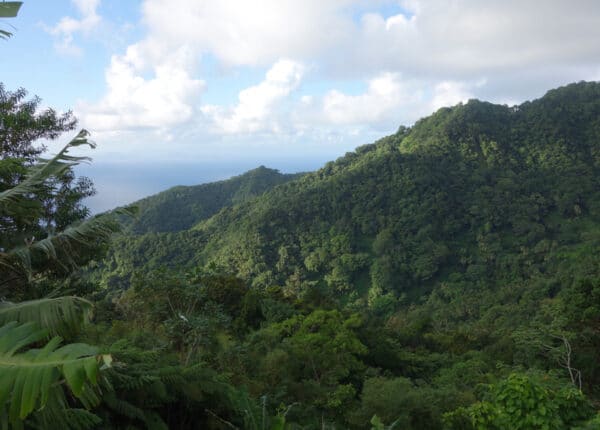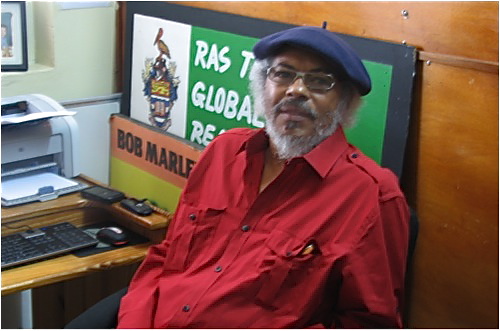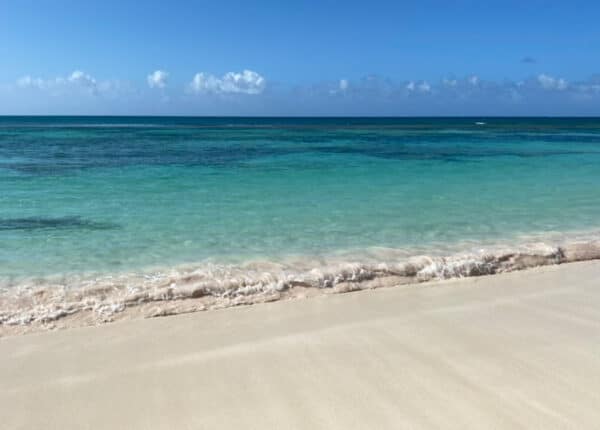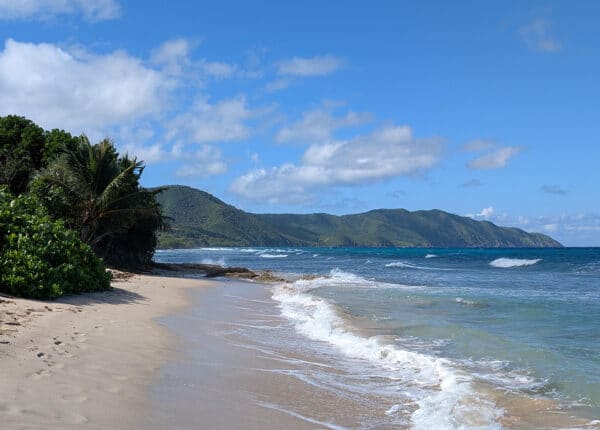Economist Dr Michael Witter on Debt, Globalisation and the Jamaican Economy
By Alexander Britell
Dr Michael Witter is an economist and senior lecturer at the Sir Arthur Lewis Institute of Social and Economic Studies at the University of the West Indies Mona. He is also one of the Caribbean’s experts on the political economy of the region, covering fields from sustainable development to the so-called “informal economy.” An expert on Jamaica, Witter talked to Caribbean Journal about the country’s ongoing debt situation, globalisation and the Caribbean and the future of the Jamaican economy.
How would you describe the current state of the Jamaican economy?
Stagnant, with a highly unequal income distribution, performing way below its potential. It needs to reposition itself in the global economy and is unable to meet the accumulated needs from social neglect all the way back to the colonial days until now. So I would say the economy is in a very weak position, because we have not been able to mobilise the resources for the production system to be able to generate the incomes that we need. Further, the challenges for doing so in a world with changing trade dynamics are increasing daily. So we’re not in a good shape now, but I think we have a lot of potential – a lot of potential.
What is the country’s debt situation?
The national debt, I think, is in the order of about 140 percent of GDP, most of which is owed to Jamaicans – about 55 percent owed locally – and too much of it is short and medium term. Maybe as much as about half of it is due within the next five years. Whereas historically, wealth moved out of the country in the form of profits or unequal change, now we have, in addition, wealth moving out of the country to foreigners in the form of debt payments, and when it goes to Jamaican holders of debt, a lot of that is also held abroad. The debt situation is very debilitating for the economy, and particularly for the government, which finds itself spending a little more than half of each tax dollar repaying debt. That leaves less than half of the tax dollar to meet the needs of the government to keep itself running, and very, very little for public investment to facilitate development. So the debt is a tremendous drain on the economy.
How would you characterise Jamaica’s interaction with the IMF?
You have to look at it in historical context. We have had, I think, 13 IMF agreements since 1973, and of the 13, I think we failed seven of them. With regard to the current one, we don’t know whether we have failed any of the last three scheduled tests – December 2010, March and June 2011 – or not. And that’s because the IMF and the government have not agreed to conduct any of these tests until certain critical decisions are made about reforms promised by the government. So there is a bit of a stalemate, presumably because if Jamaica were subjected to any of the performance tests it would fail, and some of the conditions the IMF and the government had agreed on have not been met. Generally, IMF agreements do not facilitate the expansion of the economy. Our current IMF loan was agreed in the midst of the global downturn that began in 2008. While other countries were expanding their public sectors to stimulate their economies, our IMF agreement was contracting our public sector, which served to reinforce the contractionary phase the economic recession. That’s the negative side. The positive side is that the IMF loan provided some cash for the government to stabilise the foreign exchange and the other financial markets, and this loan triggered loans from other multilateral financial institutions, particularly the World Bank and the IDB, to support the government’s budget.
You mentioned the potential of the Jamaican economy. In which sectors do you see the most potential for growth?
There is the potential in Jamaica for high-quality exotic foods and for various cultural services – ranging from music to sport to film. I think there is also specialised manufacturing that we could do, with appropriate investment, again in the processing of exotic foods, but maybe also in specialised garments that are properly designed. I think that there are areas within tourism from which we could get a higher returns, instead of the kind of mass tourism that we have gone into. I think of things like health tourism, for example, where we cater to recuperating accident victims and recuperating athletes, because we have the climate and we are near to the American market. So there are a variety of things we could do that would take advantage of our natural endowments in things like high-quality food and entertainment and our rather remarkable cultural capabilities.
You’ve written on the subject of the “informal economy.” What do you mean by that?
When I first wrote a paper on the informal economy, maybe 30 years ago, I found 32 definitions. And I’m sure there are many more now. For me, I use informal economy to mean anything that is outside the rules – meaning the laws – and regulations – meaning standard practices. For example, a doctor who is not operating within the guidelines of the medical association is carrying out an informal activity by that definition. Similarly, the teacher who runs an extra lessons business or a basic school in her backyard is engaged in informal activities. But many important informal activities are illegal. From this perspective, some of the most important industries in the world are informal – the sale of illegal weapons, the sale of illegal drugs, the laundering of money and the trafficking in human beings. So we ought not to think of the informal sector in Jamaica as some kind of aberration. It is very important in Jamaica. The most conservative estimate that is now accepted was done by the IDB about five or six years ago. The estimated that the informal economy was the equivalent of about 40 percent of GDP, without taking account of the trade in illegal drugs.
You’ve also written extensively about globalisation. What do you think has been globalisation’s biggest impact on Jamaica and the wider Caribbean?
Jamaica and the Caribbean were at the beginning of the global economy. Before the Caribbean was colonised and made into producers of sugar using slave labour, there was no global economy. The term globalization entered the dictionary in 1991, and the usual example is the global car, with the engine made here, the body made there, the seats made elsewhere and the car assembled somewhere else. But we had a global chocolate bar long before that, with cocoa coming from Ghana, sugar from the Caribbean, and Cadbury making it in England. The problem with the Caribbean today is that the global economy no longer wants what the Caribbean has. So those economies which were specialised for the global economy are now finding themselves disconnected from the global economy. These are economies that were always in the center of the global economy. The only thing we have to give them now is sun, sea, sand and sex tourism. We are all competing with each other to offer that service. If and when they can produce these and other leisure services elsewhere, even virtually, then we will also become irrelevant in this industry too. Our problem is not the impact of globalization, meaning the disruption of traditional economies. Our problem is the impact of globalization meaning the loss of traditional exports to the global economy.
Where do you see Jamaica in five years?
I think there won’t be much difference in Jamaica in the next five years. Five years is a very short time in the life of a country. I don’t see us solving our debt problem in the next five years. I don’t see the young people outside getting more serious about the country in the next five years. We need to start thinking in terms of generations. The problems we have are generation-long problems, such as developing a highly educated population, creating new industries and turning our legendary creative imagination into production in ways that are sustainable over time. I don’t think there is a quick fix. I hope I am wrong and that in five years many of those critical problems, if not resolved, will be on their way to having some kind of resolution.







